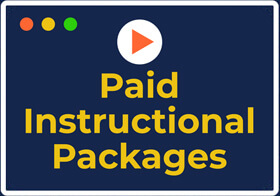Watch our free Starting Settlement Discussions video
Divorce is a big decision
You can get through it with your dignity and your pocketbook in tact.
Read on for real answers (we never hide the ball) on how to develop an exit strategy that gets you off to a legally advantageous start and strategically plan your divorce.

We offer a variety of free divorce resources. Click a topic to learn more.
Need more help? This section also has a paid instructional package available.
FAQ’s Related to Settlement Discussions
If you are able, have a face-to-face discussion with your spouse about all the issues you need to agree upon. Have the discussion at a coffee shop or similar place if you feel meeting in a public place will help keep the discussion calm. If you can’t have a discussion face-to-face, do it over the phone or exchange settlement proposals via email.
Start with simple issues that you feel confident you can agree upon. Property issues are usually a good starting point. It is usually much easier to reach an agreement about how to divide furniture or bank accounts than to agree on how to divide children or how much support should be paid. Once you get the ball rolling with some initial agreements about how to divide your property, keep the momentum going. Build on those simple agreements to move on to more difficult issues. Save the hardest issues for last. It may take several meetings over a period of weeks or months before you can reach an agreement on all issues.
If you can’t reach an agreement with your spouse on a particular issue, try making concessions on other issues and then “packaging” a settlement involving a group of issues. Sometimes, reaching a settlement is just a question of timing. Put off settlement discussions until your spouse is in a more receptive mood to negotiate.
Sometimes, the roadblock to se lement is the failure of one or both spouses to listen to the other spouse’s concerns. We can’t over emphasize this. If you are stuck on a particular issue, ask your spouse to describe in detail his or her concerns regarding that issue. Then, really listen to your spouse. Don’t interrupt. Don’t argue. Let them have their full say. Sometimes, cases can’t be settled until your spouse feels they had a chance to express their feelings and concerns and you actually listened and understood what they said. After you have listened to your spouse, ask your spouse what he or she thinks can be done to address their concerns. Work on coming up with a plan that will address their concerns.
If you are stuck on child custody related issues, consider setting up a meeting with a therapist that specializes in children’s issues and ask the therapist to help you and your spouse reach agreements on custody issues. There are therapists that focus their practice on children and child custody disputes. We have found that, after two or three meetings with a therapist, the vast majority of our clients were able to reach a custody agreement.
If you can’t come to terms on one or more issues, consider meeting with a mediator. Mediation is certainly be er than litigation.
In mediation, Husband and Wife hire one neutral mediator. The mediator is typically a divorce lawyer. The mediator does not have to be a lawyer. The mediator can be a therapist or anyone else that has experience mediating disputes. Sometimes a mutual friend can act as a mediator. If you are going to mediate, it is best to use a divorce lawyer because the lawyer is going to be familiar with divorce laws and court procedures.
The role of the mediator is to help the parties reach agreements on all issues including division of property and debts, custody, and support. The mediator identifies issues for discussion, assists with the exchange of information and documents, educates the parties regarding the law, and suggests settlement alternatives.
You can use a mediator to help you reach an agreement on all issues or, if you and your spouse are able to agree on most issues, then you can use a mediator to help you with only one or two difficult issues.
It will probably help if you talk with your spouse in advance of the mediation. See what issues you can agree upon. Don’t spend money on a mediator for issues you are able to agree upon on your own. Fill out your Preliminary Declaration of Disclosure documents and exchange copies with your spouse before you begin mediation. If you have those disclosure documents drafted in advance and bring them with you to the first mediation session, that will save you time and money. Also, watch our “Ge ng Educated” videos before you start the mediation process. This will keep your costs mediation costs down because you will already be informed on the law.
No. In mediation, the mediator has no power to decide disputed issues. Issues get resolved by mutual agreement of the parties. Mediation is not arbitration. In arbitration, a neutral arbitrator decides issues, like a judge decides issues. In mediation, the mediator’s role is to facilitate the process of making agreements.
At anytime, either party can immediately stop the mediation process. If the mediation process is stopped, the mediator is prohibited from representing either party in any subsequent litigation.
The benefits include: 1) lower costs; 2) mediation a confidential process; 3) the parties control the process; 4) both parties are actively involved in the settlement negotiations; 5) mediation takes less time than litigation; and 6) mediation is less stressful than litigation.
Mediation is not appropriate for everyone. If one or both parties are dishonest and will attempt to conceal assets and income, then the parties should be represented by independent lawyers that can subpoena records, take depositions, and propound discovery in order to flush out assets and income. Mediation is not appropriate where there is a history of domestic violence because one spouse may coerce and intimidate the other spouse into an unfair settlement.


